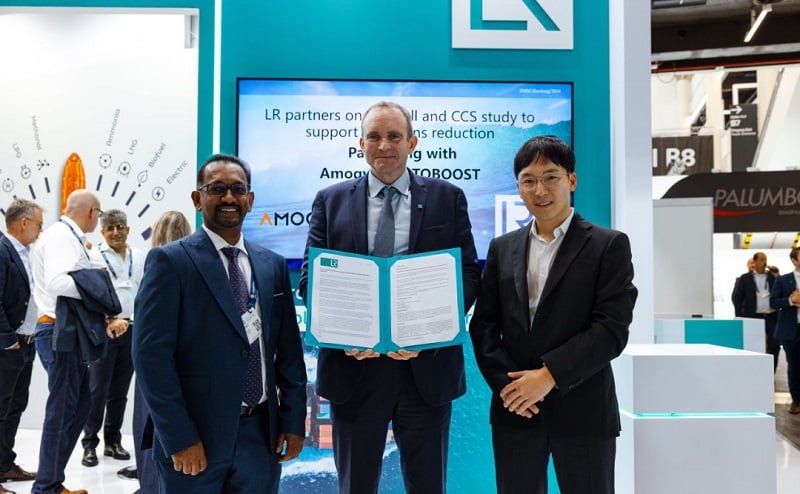Lloyd’s Register (LR) is teaming up with energy innovators ROTOBOOST and Amogy to conduct a comprehensive study on fuel cell and pre-combustion Carbon Capture and Storage (CCS) systems aimed at reducing emissions in the maritime sector. This Joint Development Project (JDP) will thoroughly evaluate the potential of hydrogen fuel cells, ammonia and methane cracking technologies, and CCS from technical, financial, and regulatory perspectives.
The project will specifically assess these technologies’ effectiveness in reducing emissions and operational costs for a designated container feeder fleet. It will also align these technologies with EU Emissions Trading Scheme (ETS) FuelEU and IMO Carbon Intensity Indicator (CII) regulations, comparing their performance with conventional fuels.
Key components of the study include:
- Amogy’s ammonia-to-electrical power system, which converts ammonia into electricity, offering a clean energy alternative for maritime applications.
- ROTOBOOST’s Marine Hydrogen production technology, which includes a thermocatalytic decomposition process that generates solid carbon as a byproduct, making LNG a future-compliant fuel.
- PowerCell’s Marine System 200 hydrogen fuel cell, which will be tested for its efficiency and compatibility with maritime operations.
Jack Spiros Pringle, Lead Consultant, Business Advisory at Lloyd’s Register, commented: “This JDP marks a pivotal advancement in alternative propulsion methods. As shipowners navigate new EU carbon market requirements and international regulations, Lloyd’s Register is committed to validating these innovative energy technologies to maximize savings and benefits for the maritime industry.”
Seonghoon Woo, CEO of Amogy, added: “Amogy’s ammonia-to-power systems offer a viable clean energy solution for the maritime industry. Our technology not only reduces carbon emissions but also provides a competitive edge by avoiding European carbon taxes and enhancing compliance with CII regulations.”
Kaisa Nikulainen, CEO of ROTOBOOST, highlighted: “ROTOBOOST’s Marine Hydrogen technology not only produces solid carbon from hydrogen generation but also ensures that LNG remains a viable fuel option for the future. Our system transforms CO2 into valuable solid carbon, bridging the gap between economic viability and environmental sustainability. This JDP merges commercial and technical expertise to explore emerging technologies, driving the decarbonization of shipping through sustainable solutions.”
Lloyd’s Register has already issued a feasibility statement for Amogy’s Technology Qualification Plan and granted Approval in Principle to ROTOBOOST’s pre-combustion carbon capture system, marking significant steps forward in the validation of these technologies.
This study represents a critical move towards achieving meaningful emissions reductions in shipping and aligns with global efforts to combat climate change.
About Lloyd’s Register (LR)
Established in 1760 as a marine classification society, Lloyd’s Register has grown into one of the world’s leading providers of professional services in engineering and technology. With operations in over 75 countries, LR focuses on improving safety and performance for critical infrastructures globally. The profits generated fund the Lloyd’s Register Foundation, a charity dedicated to supporting engineering-related research, education, and public engagement. LR’s mission is to work together for a safer world.
Source Lloyd’s Register

